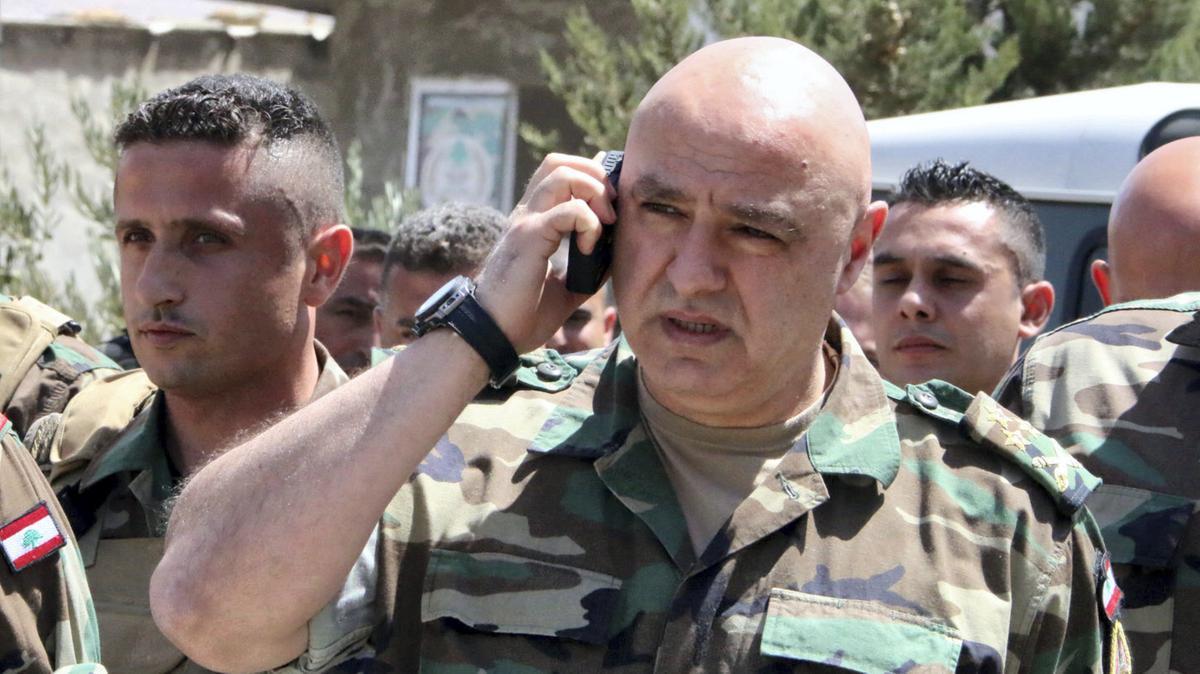ALGIERS: Thousands of people attended the funeral on Saturday of Algerian human rights activist Kamel Eddine Fekhar, whose death in pre-trial detention has prompted an investigation.
Fekhar, a 54-year-old doctor, was a leading advocate for the Berber-speaking Mozabite minority.
He was buried in the El-Alia cemetery in the capital Algiers, where people gathered by his coffin and a portrait of the activist.
Fekhar died in the Blida hospital south of Algiers after being transferred there “in a comatose state,” his lawyer Salah Dabouz said on Tuesday.
The activist had been on hunger strike since late March, his lawyer said, when he was arrested for “attacks on institutions.”
The Justice Ministry said on Wednesday it had ordered an investigation into the circumstances of Fekhar’s death, following criticism from Algerian and international rights groups.
A day earlier, large crowds of Algerians took to the streets of the capital, where dozens were detained ahead of the latest protest two months after leader Abdelaziz Bouteflika resigned.
Demonstrators filled avenues in central Algiers chanting slogans against a push to hold presidential elections in July and rejecting calls by the armed forces chief for dialogue.
Memorial
Protesters on Saturday held a minute’s silence for the activist before breaking into chants blaming the authorities for his death.
Fekhar’s lawyer said his client had been held in Ghardaia, 480 km south of Algiers, for weeks “in inhumane conditions.”
The activist was first arrested in 2015 during unrest in the M’zab Valley, where Ghardaia is the largest city, between the country’s Mozabite community and Chaamba Arabs.
After serving two years in prison for public order offenses, he was released in July 2017.
Protesters are looking to keep up the pressure on the North African state’s ruling body with weekly rallies despite the end of Bouteflika’s two-decade rule.
Police had earlier rounded up some 50 people, mainly young men, in the heart of Algiers ahead of the planned protest.
Those detained had their IDs and mobile phones confiscated and were loaded into vans, an AFP journalist reported.
Demonstrators taking to the streets are demanding the resignation of all those tainted by ties to the former regime.
Local journalists reported that people were out in force in the country’s other biggest cities of Oran, Constantine and Annaba.
Armed forces chief Ahmed Gaid Salah has become the main powerbroker after he turned on his boss Bouteflika and helped ease him from office in the face of the mass protests.
He is pushing for elections on July 4 but demonstrators insist there must be a wholesale change of top officials before a new vote can be held.
Only two little-known figures have submitted their candidacies on time for the disputed poll, raising doubts about plans to stage it.
The Constitutional Council has until June 5 to decide whether to approve the two hopefuls, who need the backing of at least 600 elected officials or 60,000 voters to get on the ballot.
The rallies that erupted across the country in February after Bouteflika announced plans to seek a new term have largely been tolerated by security officials overwhelmed by the vast crowds.
Last Friday the police made numerous arrests in central Algiers of protesters carrying placards and the national flag.
The crowd this week held a minute’s silence for human rights campaigner Kamel Eddine Fekhar before breaking into chants blaming the authorities for his death in custody on Tuesday.
Fekhar, an activist from the Mozabite Berber minority, was being held in pre-trial detention for “attacks on institutions” and had been on hunger strike since March.
The justice ministry said it was probing his death after his lawyer complained he had been kept in “inhumane conditions.”




